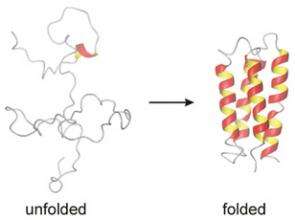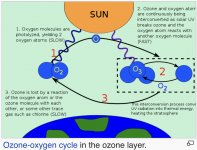AMD makes computers that are so small they can't find them.
Does that mean our cat has has billions more synapses so it can move to where the sun is shining without knowing why?
Thinking up tough problems may be an art and not a science. I forgot more than I remember, so I should get of this list, or not. a,b.c...
Does that mean our cat has has billions more synapses so it can move to where the sun is shining without knowing why?
Thinking up tough problems may be an art and not a science. I forgot more than I remember, so I should get of this list, or not. a,b.c...
After the 2000 announcement, work was continued for an extra 3 years to finish the ‘essentially complete genome’.So the Human Genome Project was completed 20 years ago. 3 billion base pairs. How many years did it take to reach it's current state? 20,000 genes.
By 2020, more sensitive detection methods had identified ∼20,000 pseudogenes, which are nonfunctional segments of DNA that resemble functional genes.

Work continues and is diversifying, as this article dated Jan 7, 2021 explains: https://www.nejm.org/doi/full/10.1056/NEJMp2030694
I've no idea what all this means, as it's well outside my terms of reference.The focus of genomics research has recently moved beyond analyzing DNA variation to studying patterns of gene expression in individual cells, a step that has been driven by new methods for single-cell RNA sequencing and chromatin analysis. Tens of millions of cells have been characterized thus far en route to a complete cell atlas of the human body. This effort is revealing hundreds of new cell types and characterizing the ways in which cell types differ between healthy people and people with various diseases.

Physics, chemistry and astronomy are areas with which I am sufficiently familiar to make comment upon, but biology/biochemistry sucks the life out of me!
It’s instructive to consider we have a theory of how the universe works at a macro level (GR) with complicated math etc. We have the Standard Model, QM, QED and QFT and all this stuff has been worked out by ‘Profoundly Gifted’ people.
There are people working in the biological sciences who are also profoundly gifted. But we do not have a cure for cancer, Alzheimer’s or multiple sclerosis i.a.o
There are seriously complex problems that test the very limits of what humans can achieve in the same way hard theoretical physics does. We’ve only just recently developed the AI computer algorithms to predict how proteins fold. Prior to this it was a painstaking exercise that took years for just one molecule.
We have much to learn about how life actually works
There are people working in the biological sciences who are also profoundly gifted. But we do not have a cure for cancer, Alzheimer’s or multiple sclerosis i.a.o
There are seriously complex problems that test the very limits of what humans can achieve in the same way hard theoretical physics does. We’ve only just recently developed the AI computer algorithms to predict how proteins fold. Prior to this it was a painstaking exercise that took years for just one molecule.
We have much to learn about how life actually works
Last edited:
TV's Agenda with Steve Paikin focused on the Project's 20 year completion last night so I thought I'd mention it since this little universe here appears to be in contraction.
The cure for Alzheimers is well known...use it or lose it.
The mechanics of life is constantly being explored and discovered, the essence of life is not a science topic.
The cure for Alzheimers is well known...use it or lose it.
The mechanics of life is constantly being explored and discovered, the essence of life is not a science topic.
Well put, Bonsai!
In line with what you said, the data sets emerging from genomic technology are going to advance biology through sophisticated computational analysis.
Trainee life scientists will have to acquire the same computer skills as mathematical physicists.
Computer power is bringing us ever closer to an understanding of life, the universe and everything - we could be there in another 42 years!
In line with what you said, the data sets emerging from genomic technology are going to advance biology through sophisticated computational analysis.
Trainee life scientists will have to acquire the same computer skills as mathematical physicists.
Computer power is bringing us ever closer to an understanding of life, the universe and everything - we could be there in another 42 years!
Only science should be spoken here.The mechanics of life is constantly being explored and discovered, the essence of life is not a science topic.

Yea, that word, life. Now there's one heapin helpin can o'worms eh. If only there was a different 'other' alternative. Iether way we're still here.Only science should be spoken here.
My wife tells me I'm not all there!...we're still here.
TV's Agenda with Steve Paikin focused on the Project's 20 year completion last night so I thought I'd mention it since this little universe here appears to be in contraction.
The cure for Alzheimers is well known...use it or lose it.
The mechanics of life is constantly being explored and discovered, the essence of life is not a science topic.
I would love to believe it was all that simple. Margaret Thatcher had Alzheimer’s and Murray Gel-Mann (seriously gifted) also had problems. Granted, this was in late life for both individuals, but use it or lose it is no defense against folding proteins- one of the hard (ie quantifiable) physical processes involved in Alzheimer’s. There are over 200 separate genetic and environmental vectors involved in the disease. There is no silver bullet here. How do you begin to completely solve this? Is it solvable, or do you just delay it? Or just manage it? As of 2021 we don’t have the answers.
Last edited:
OK - I had to look this up!...use it or lose it is no defense against folding proteins.

Proteins are made up of chains of amino acids which 'fold up' into unique 3D structures.

Predicting the way proteins fold up is fundamental to developing treatments for diseases.
The "protein folding problem" has been a great challenge for the past 50 years.
However, as Bonsai has said, biologists are now starting to use advanced computational methods to solve the problem.
Except for anecdotal, well yes and no kinda. I think I mentioned a TV documentary of this account where a cloister of nuns were the focus in an Alzheimers research study. They were in their 80's and 90's with nothing to do but play scrabble and boggle and put together jigsaw puzzles. Their brains were like swiss cheese with no outward signs of dementia. They should have been dead long before. The conclusion was simply that they continued developing an ongoing new network of synapses as their brains were deteriorating. So whether or not it was Alzheimers that eventually killed them became moot at their ages. Amazing. But even more amazing was the segment of the same program that focused on a group of adolescent children who although excelling above their peers in school, they had no brain! One had a tiny bit of activity in her temporal areas, another had only a brain stem, and another had nothing noticeable except for the fact his head was collapsed on the left hemisphere like a deflated ball. Their skulls were empty cavities and you would never know it to deal with them. Their malady was discovered inadvertently during testing for other things. WOWI would love to believe it was all that simple. Margaret Thatcher had Alzheimer’s and Murray Gel-Mann (seriously gifted) also had problems. Granted, this was in late life for both individuals, but use it or lose it is no defense against folding proteins- one of the hard (ie quantifiable) physical processes involved in Alzheimer’s. There are over 200 separate genetic and environmental vectors involved in the disease. There is no silver bullet here. How do you begin to completely solve this? Is it solvable, or do you just delay it? Or just manage it? As of 2021 we don’t have the answers.

The brain does rewire with a lot of effort and it is able to shift or co-opt other parts of the brain to do tasks that former parts did. This often happens subsequent to brain injuries or brain surgery. In some gifted individuals, parts of the brain are co-opted to different tasks as a natural process during brain development. Examples are chess players and individuals who can do complicated arithmetic involving large numbers in their heads for example.
In the case of the nun’s, they probably would have lived longer without the disease, but it does not change the fact that their brains were like ‘Swiss cheese’ - ie severely physically damaged.
In the case of the nun’s, they probably would have lived longer without the disease, but it does not change the fact that their brains were like ‘Swiss cheese’ - ie severely physically damaged.
The brain does rewire with a lot of effort and it is able to shift or co-opt other parts of the brain to do tasks that former parts did. This often happens subsequent to brain injuries or brain surgery. In some gifted individuals, parts of the brain are co-opted to different tasks as a natural process during brain development. Examples are chess players and individuals who can do complicated arithmetic involving large numbers in their heads for example.
In the case of the nun’s, they probably would have lived longer without the disease, but it does not change the fact that their brains were like ‘Swiss cheese’ - ie severely physically damaged.
It's been several years since I read it, but Michael Talbot touched on brain issues involving hydroencephalopayhy, where random autopsies revealed extreme examples of this condition. Sometimes with only a thin layer of brain cells encasing huge volumes of only water. Yet the individuals autopsies had displayed no anomalous behavior, and shown no symptoms of anything being amiss.
I've heard of evidence that keeping intellectually active helps to delay and/or reduce the effect of (some forms of) age-related mind deterioration.
The life of Phineas Gage may be instructive in how the brain works, and how it fails after injury. He had a rod go straight through his brain in a railroad accident. He lived, but his personality was changed for the worse. I first recall the story from a PBS Nova episode decades ago. There are many other articles telling his story.
Phineas Gage - Wikipedia
The life of Phineas Gage may be instructive in how the brain works, and how it fails after injury. He had a rod go straight through his brain in a railroad accident. He lived, but his personality was changed for the worse. I first recall the story from a PBS Nova episode decades ago. There are many other articles telling his story.
Phineas Gage - Wikipedia
Some of those nuns may still be alive.The brain does rewire with a lot of effort and it is able to shift or co-opt other parts of the brain to do tasks that former parts did. This often happens subsequent to brain injuries or brain surgery. In some gifted individuals, parts of the brain are co-opted to different tasks as a natural process during brain development. Examples are chess players and individuals who can do complicated arithmetic involving large numbers in their heads for example.
In the case of the nun’s, they probably would have lived longer without the disease, but it does not change the fact that their brains were like ‘Swiss cheese’ - ie severely physically damaged.
- Status
- Not open for further replies.
- Home
- Member Areas
- The Lounge
- What is the Universe expanding into..

